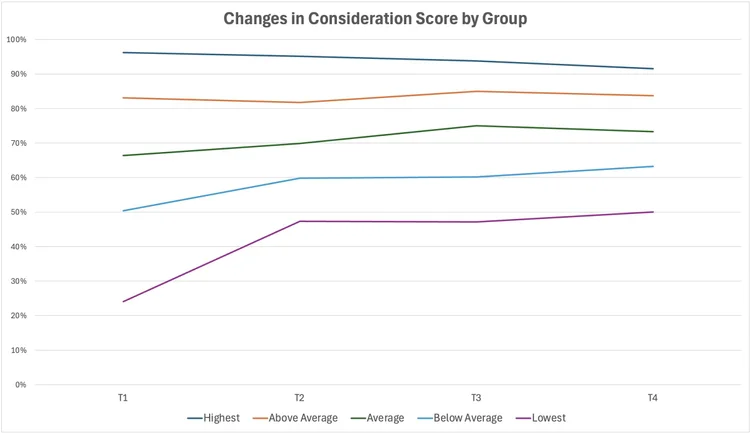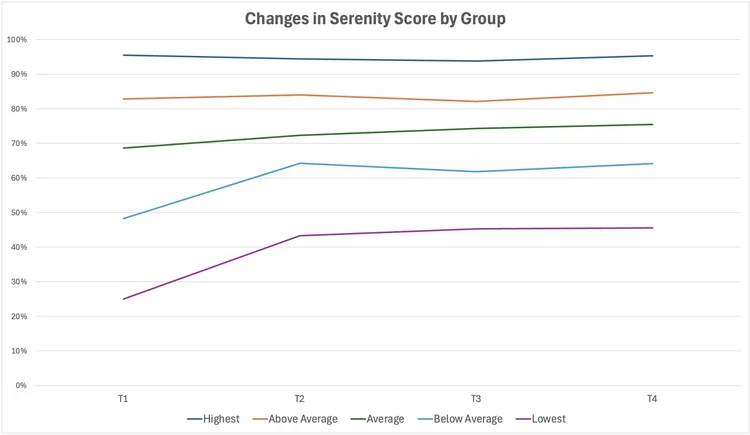



We have completed our validation study for the Progress Monitoring module that will be integrated into the MIASA system this fall. The four-week study of 300 parent-adolescent pairs provides strong evidence for the module's reliability and validity in tracking weekly changes in adolescent mental health. The assessment included a 17-item parent questionnaire and a 20-item youth self-report measure, both assessing four core domains (with negative domains reframed in a positive light for results presentation):
Parent-youth correlations varied by domain, with emotional distress showing the strongest agreement (.720-.804) and acting-out behaviors showing moderate agreement (.515-.600), consistent with past findings on informant perspectives.
Initial Challenges Showed Improvement: Adolescents with initially low functioning demonstrated the most substantial improvement across domains, with particularly strong effects for emotional distress and behavioral concerns.


Note: Groups were determined by functioning based on week one total scores from youth report, with highest representing those with best initial functioning.
Assessment as Intervention: Regular, structured self-reflection and family communication facilitated by weekly assessments may have therapeutic benefits, particularly for adolescents facing the most significant challenges. Parents noted positive changes in their teens throughout the study period, with many attributing improvements directly to the assessment process itself:
"I think she has been self reflecting because her attitude has improved. Maybe doing this survey has helped her self reflect and it seems as if she is improving."
"I think this survey is getting us closer."
"I have seen a marked improvement in her attitude this week for some reason - maybe this survey brought some attention to her behaviors and made her more self aware. I'm crossing my fingers anyway."
These observations from parents reinforce the therapeutic value of structured assessment, suggesting that the process facilitates both individual self-reflection and improved family communication, creating opportunities for positive change without formal intervention.
Visual Progress Feedback: Adolescents will be able to view their results through simplified progress graphs that track their improvement across domains, potentially enhancing motivation and self-awareness through clear visualization of changes over time.
Group and Individual Treatment: The brief weekly format makes it highly practical for monitoring multiple adolescents simultaneously in group therapy settings, where clinicians can efficiently track progress across entire groups while identifying individual participants who may require additional support or adjustments to their intervention.
Northwest Psychometric is preparing for the Fall 2025 launch of the complete MIASA system with a new 2025 normative sample using a US probability panel. Mental health professionals and school administrators interested in incorporating evidence-based adolescent assessment tools into their practice can contact us at info@nwpsychometric.com for more information.
Your email address will not be published. Required fields are marked *